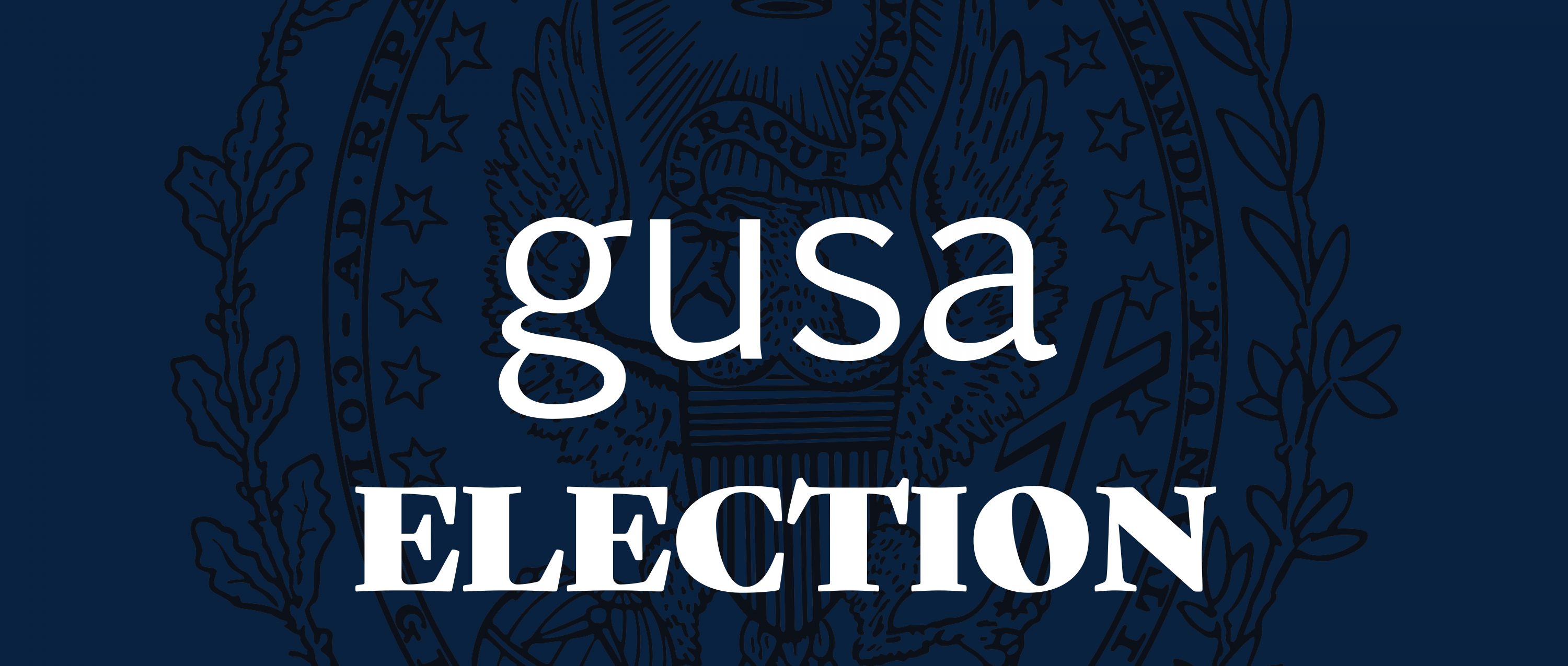Twenty-five candidates for the GUSA Senate seats representing the Class of 2024 spoke at a virtual candidate forum event on Sept. 16. The candidates each gave a short introduction to their platform and why they should receive your vote on election day.
Here’s who spoke and how they plan to earn your vote. Full platforms have been posted by the GUSA Election Commission.
Note: Not all candidates provided their school at the town hall. That information is left blank when not provided.
Sarai Simpson (COL ’24) described herself as an advocate for change who would fight for the student body. “During these quite unique times, I’ll be a strong advocate for solidarity,” she added.
Rebecca Pan’s (’24) platform is focused on transparency between GUSA, students, and administration; equity between students; and advocacy. “I want to advocate for you, working towards transparency, equity, and advocacy for our community,” she said.
Jack Quinn (SFS ’24) identified disability equity, environmentalism, and fighting systemic racism as key areas for his campaign. “I know these problems are incredibly difficult to solve, but if I’m elected senator, I’m confident that significant and expedient change will happen,” he said.
Mason Leath (’24) focused on helping Georgetown reopen safely for the spring semester, increasing communication between students and administration in reopening plans, and increasing philanthropic outreach within GUSA.
Lincoln Le (COL ’24) also emphasized transparency and inclusivity. “I want to keep admin accountable,” he said. “Reduction in tuition definitely shouldn’t warrant a reduction in student life.”
Kate Murray’s (COL ’24) platform was based on transparency, accessibility, and connection. “My first job is simply to be as receptive to our peers’ voices as possible,” she said.
Mason Tucker (MSB ’24) said as a senator, he would focus on education reform, equality, and cooperation. “I want to foster an inclusive environment and reevaluate social norms,” he said.
Manahal Fazal (SFS ’24) said accountability and transparency from the administration is important for Georgetown’s relationship with slavery and the prison industrial complex. Fazal also stated her intent to advocate for mental health and CAPS expansion on campus.
Rena Gabber (’24) listed a zero-waste campaign, expedited divestment from fossil fuel companies, and anti-racism as key parts of her campaign. She emphasized the importance of new graduation requirements, hiring more faculty of color, and creating a new anonymous bias reporting system as well.
Rachel Li’s (’24) platform is communication, connection, and cura personalis. She said she would increase communication between GUSA, the student body, and the administration in addition to raising awareness of students’ mental health needs.
Bennett Pompi (SFS ’24) said he wanted Georgetown to become more supportive and inclusive. “I’ll fight for what I believe in: making our school a better place for those whose voices have been ignored for far too long,” he said.
Camber Vincent (SFS ’24) emphasized communication, support for marginalized communities, and campus improvements. “You might know me from my Instagram posts as the person who associates with the Darnell rats, but my campaign is more than that,” he said.
Deborah Wey’s (SFS ’24) campaign centers inclusivity and advocacy for marginalized students. “We have heard there are many experiences with not being heard by admin or the Senate itself,” she said. “I would like to increase representation for marginalized communities.
Logan Wang (SFS ’24) said transparency is his campaign’s most important issue. “Only with a transparent university admin can we approach racial justice, gender empowerment, sustainability, and inclusivity,” he said.
Bella Fassett (SFS ’24) said she is committed to creating a more progressive GUSA. “Right now, GUSA is petty, performative, and doesn’t do its job,” she said. Fassett intends to change this by emphasizing racial justice, accessibility, and LGBTQ inclusivity.
Nirvana Khan (SFS ’24) spoke about how her experience as a low-income woman of color who went to a private high school motivated her to run for Senate. “Having lived through all those microaggressions, I want to fight against that here, and I know how,” she said.
Tyler Clough (MSB ’24) focused on increasing student funding for diversity programs and mental health organizations on campus. “Mental health is particularly important to me,” he said.
Dominic Gordon (SFS ’24) said his platform is focused on representing the student body. “I feel that we need to represent students that won’t be in the GUSA senate,” he said. “We need to find a system to let people outside the Senate bring their ideas to us.”
Gregory Brew (’24) spoke about his experience being cut from his high school soccer team and the lessons it taught him. “I made the best out of my situation,” he said. “That is what we need at Georgetown with COVID-19.”
Cameron Sagheb (COL ’24) emphasized mutual trust between elected officials and the people they represent. “Vote for me not only if you want a leader who you can trust, but also for a leader who knows he can trust you,” he said.
Manushi Tanna’s (’24) campaign centers around representation and advocacy. “I want to advocate for the voices of students of color, the LGBTQ+ community, students with disabilities, first-generation, low-income students, and more,” she said.
Carlos Rueda (’24) said politicians have forgotten the people they represent and that as a senator, he would rebuild a connection between the people he represents. “We must be sure to install senators who genuinely want to make a better Georgetown,” he said. (Full disclosure: Rueda has written for the Voice leisure section.)
Aminata Touray (’24) emphasized her experience as a low-income Black woman and explained how it has impacted her relationship to institutions like GUSA. “People like me have been navigating systems that are not ‘vote for me,’” she said. “I not only promise to advocate for you, but start action.”
Lara Sophia Santana (SFS ’24) said her campaign’s main pillars are community, transparency, and resilience. “I will firmly advocate for transparency and equity regarding the spring semester, systemic policies, and issues regarding the code of conflict and more,” she said.
Finally, Adora Adeyemi (MSB ’24) explained her campaign is about fighting for a more diverse and progressive GUSA. “GUSA hasn’t been either of those things in the past,” she said. “Vote for me if you want socioeconomic advocacy and someone fighting for marginalized groups.
Senate election voting for all classes opened 10 p.m. EST on Sept. 17. In addition to the candidates present at the town hall, Aryaman Sharma (‘24) will also be on the ballot for the class of 2024. Voting will be open until 11:50 p.m. EST on Sept. 19.







